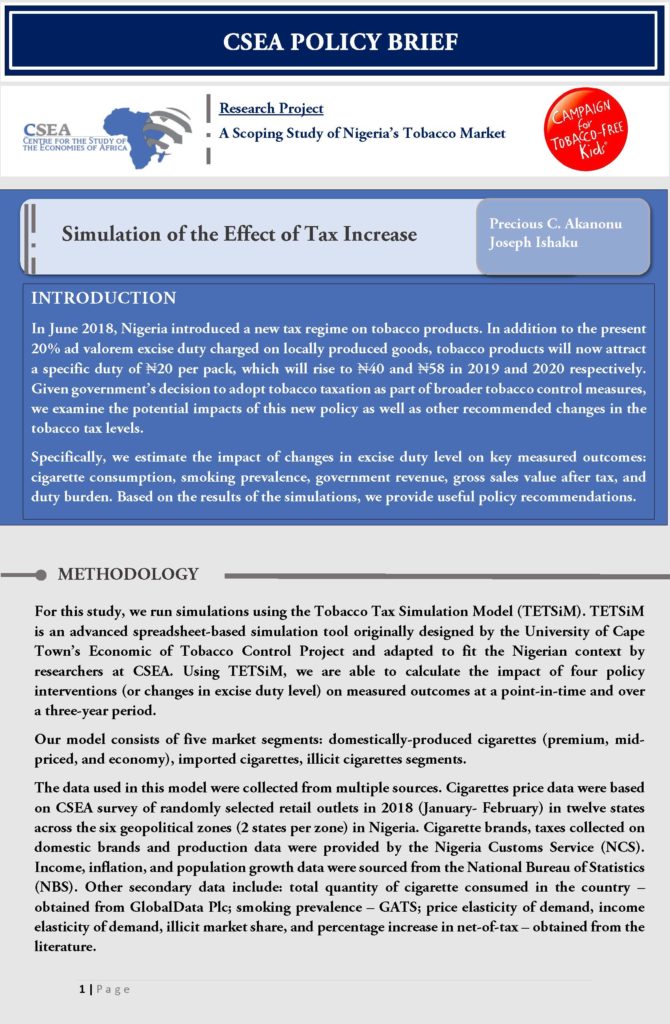In June 2018, Nigeria introduced a new tax regime on tobacco products. In addition to the present 20% ad valorem excise duty charged on locally produced goods, tobacco products will now attract a specific duty of ₦20 per pack, which will rise to ₦40 and ₦58 in 2019 and 2020 respectively. Given government’s decision to adopt tobacco taxation as part of broader tobacco control measures, we examine the potential impacts of this new policy as well as other recommended changes in the tobacco tax levels.
Policy Brief & Alerts

January 25, 2019
Simulation of the Effect of Tax Increase
In June 2018, Nigeria introduced a new tax regime on tobacco products. In addition to the present 20% ad valorem excise duty charged on locally produced goods, tobacco products will now attract a specific duty of ₦20 per pack, which will rise to ₦40 and ₦58 in 2019 and 2020 respectively. Given government’s decision to […]
Read →
Related
Nigeria Economic Update (Issue 29)
Global oil price edged upwards in the review week. International crude benchmark, Brent, rose week-on-week by 3.1 percent to $50 per barrel as at July 21, 20173 a level it had not attained since June. The remarkable gains followed demand-side progress earlier statistics from China showed increase in crude imports, indicating prospects of higher demand. This was also complimented by the huge drop in US domestic crude production (Crude reserves fell by 4.7 million barrels). If the trend is sustained, Nigeria could record further rise in its Gross Federally Collected Revenue. Nevertheless, there remains a need for Nigeria to overcome the challenge of harnessing its oil and gas resources by making strategic policy choices andensuring coordination in policy implementation to minimize macroeconomic distortions.


